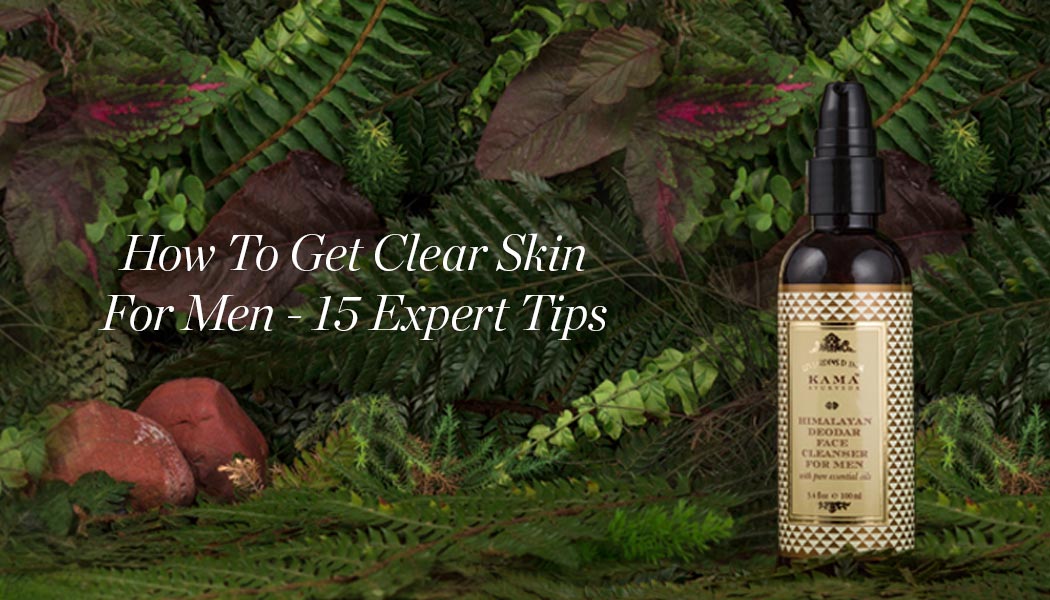Clear skin is a universal sign of health and well-being, but for men, the path to achieving a flawless complexion can be uniquely challenging. Men's skin is inherently different from women's—it's thicker, produces more oil, and is subjected to the daily rigors of shaving.
But with the right set of skin care practices, it’s possible for men to get clear skin.
What experts say -
"Increased sebum production in men's skin is a double-edged sword. It can enhance the skin's natural moisture but also creates a predisposition to acne and breakouts. Balancing the skin's oil levels through tailored skincare is essential for a clear complexion." - Dr Aruna Purohit
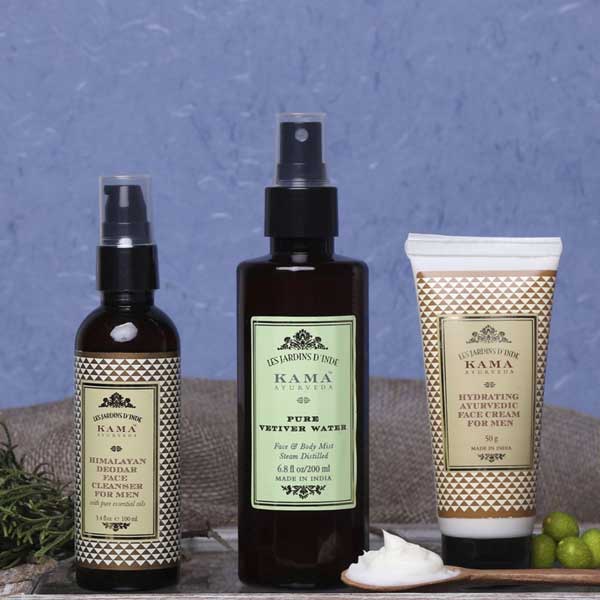
From the importance of a consistent cleansing routine to the protective power of sunscreen, we'll provide the essential steps every man can take to get a clean complexion.
15 Ways To Get Clear Skin For Men
Most men don’t consider skincare as a priority. While men's skin tends to age more slowly due to its thickness and higher collagen content, once the signs of aging appear, they progress more rapidly.
Neglecting skin care could, therefore, result in premature aging and early signs of aging in men. Here are some straightforward solutions to help them overcome their unique skincare hurdles -
What experts say -
"Facial hair can trap dirt and oil, exacerbating skin conditions for men. A thorough but gentle cleansing routine, complemented by regular beard care, is essential for maintaining clear skin beneath the surface." - Dr Kanchan Kachroo
1. Cleanse Regularly:
A cornerstone of clear skin is maintaining a consistent cleansing routine. For men, it's essential to find a gentle cleanser that matches their skin type, whether it be oily, dry, combination, or sensitive.
The right cleanser should effectively remove dirt and excess oil without stripping the skin of its natural moisture. Cleansers with harsh ingredients, particularly alcohol, can be overly drying and might lead to irritation or an overproduction of oil as the skin tries to compensate for the dryness.
We recommend Kama Ayurveda’s Himalayan Deodar Face Cleanser For Men for clean, supple and shave-ready skin.
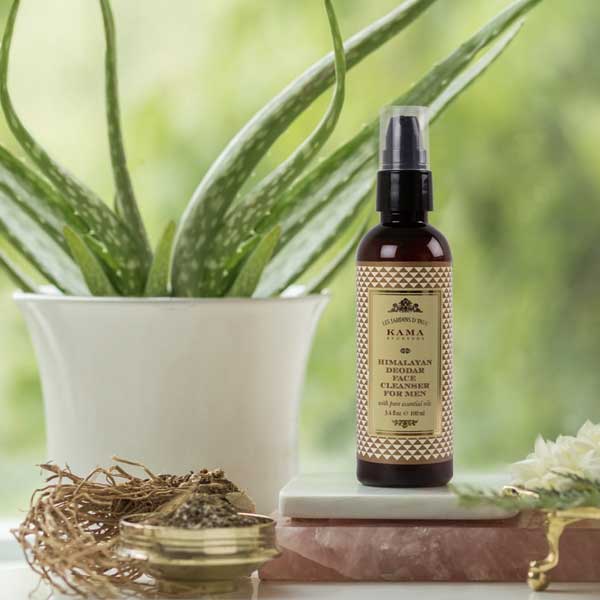
It's important to wash your face in the morning to remove any oils that have built up overnight and in the evening to clear away the day's grime and any sunscreen or products applied in the morning.
2. Exfoliate
Exfoliation is a critical step for maintaining clear skin as it aids in the removal of dead skin cells that can clog pores and lead to breakouts. However, moderation is key. Over-exfoliating can strip the skin of its natural oils, leading to irritation or even more breakouts.
Chemical exfoliants like alpha-hydroxy acids (AHAs) or beta-hydroxy acids (BHAs) can be less harsh than physical scrubs and can also help in treating post-inflammatory hyperpigmentation, a common issue for men after acne heals.
We recommend Kama Ayurveda’s Himalayan Almond Deep Cleansing Face Scrub for men for polished skin.
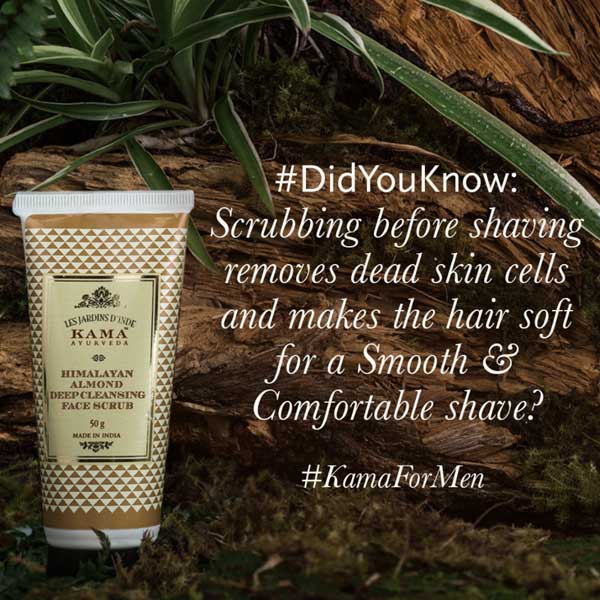
3. Moisturize:
Hydration is vital for all skin types. A common misconception is that oily skin does not need moisturizing, but in reality, all skin can benefit from a good moisturizer.
When the skin is dry, it can become irritated and more susceptible to infection and inflammation. For men who shave regularly, moisturizing can help soothe the skin and prevent razor burn.
The key is to find a lightweight, non-comedogenic formula that hydrates without clogging pores. For men who may not want a glossy finish, there are matte moisturizers available that can keep the skin looking natural and healthy.
We recommend Nourishing Day Cream For Men and Brightening & Smoothing Night Cream For Men.

What experts say -
"Men's skin loses hydration rapidly post-exercise and is frequently subjected to environmental stressors. Rehydrating and protecting the skin with quality moisturizers and sunscreens is not just cosmetic—it's a critical health practice." - Dr Gopan G
4. Sun Protection
Sunscreen is not just for days at the beach; it's a daily necessity. Ultraviolet (UV) rays can cause not only sunburns but also contribute to skin aging and the risk of skin cancer. A broad-spectrum sunscreen with an SPF of 30 or higher should be part of the daily routine, even on cloudy days, as UV rays can penetrate through clouds.
"The prevalence of skin cancer in men is a stark reminder of the importance of sun protection in their skincare regimen. Regular use of broad-spectrum sunscreen can be a lifesaver, quite literally."

For those who may not like the feel of traditional sunscreens, there are many formulations available now, including gels and sprays, which are lighter on the skin and can be more comfortable to wear. We recommend Kama Ayurveda’s Natural Sun Protection.
5. Stay Hydrated
Internal hydration is as crucial as external. Drinking plenty of water throughout the day helps maintain the skin's elasticity and can improve its texture and appearance. While the amount of water needed can vary from person to person, aiming for around 2 liters per day is a good rule of thumb.
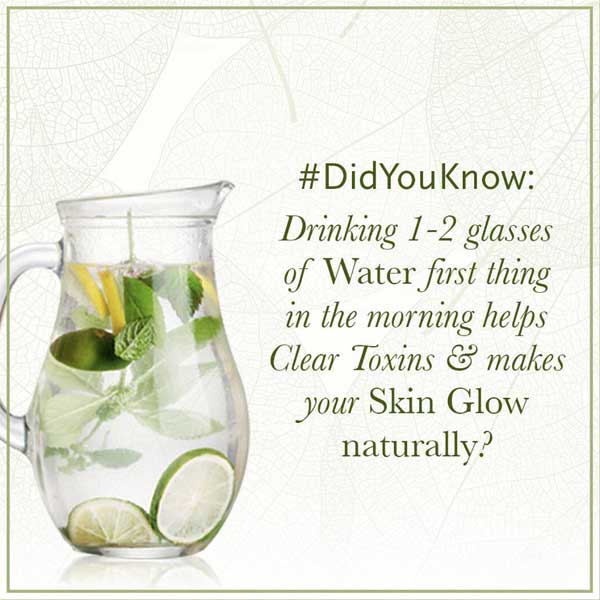
6. Healthy Diet
The adage "you are what you eat" holds particularly true when it comes to skin health. A diet that is rich in antioxidants, vitamins, and minerals can combat skin damage from the inside out.
Foods high in omega-3 fatty acids, like salmon and walnuts, can help keep skin supple and reduce inflammation. Conversely, diets high in sugar and refined carbohydrates may exacerbate acne and other skin conditions.
Antioxidants help neutralize free radicals, which are unstable molecules that can damage cells and lead to premature aging and skin cancer. Foods high in antioxidants include berries, dark chocolate, pecans, and leafy greens.
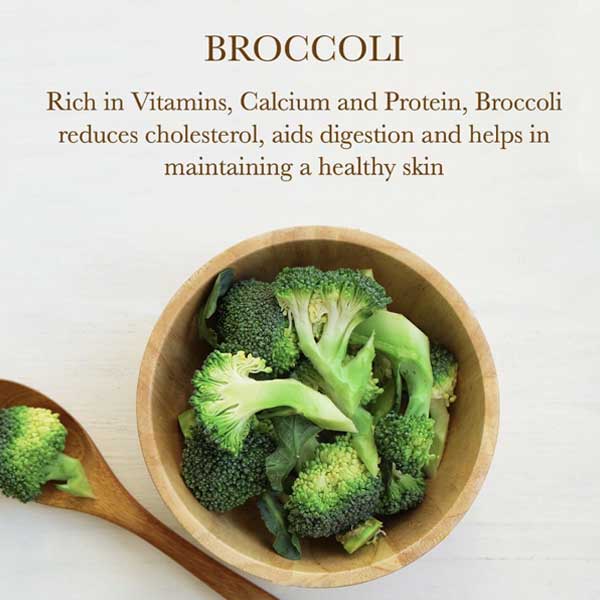
7. Exercise
Regular exercise enhances blood circulation, which helps to nourish skin cells and keep them vital. It also helps to reduce stress, which can be a contributing factor to skin issues like acne. However, it's important to cleanse the skin after sweating to prevent the pores from becoming clogged with oil and bacteria.
8. Manage Stress
The relationship between stress and skin is mediated by hormones such as cortisol, which can increase oil production and lead to acne. Chronic stress can also impair the skin's barrier function, leading to dehydration and increased sensitivity.
Chronic stress can manifest in the skin in various ways, including acne, eczema, or psoriasis. Finding effective ways to manage stress, such as through meditation, yoga, or even regular exercise, can have a positive effect on skin health.

9. Avoid Touching Your Face
Hands come into contact with countless bacteria and dirt throughout the day. Frequently touching the face can transfer these impurities to the skin, leading to breakouts. It's also important to regularly clean items that come into contact with the face, like phone screens.
10. Shaving Carefully
Shaving can be harsh on the skin, potentially causing irritation or ingrown hairs. Using a clean, sharp razor and shaving in the direction of hair growth can minimize these risks. A moisturizing shaving cream can also provide a protective barrier and help the razor glide more smoothly.
Shaving in the direction of hair growth helps minimize the risk of ingrown hairs and irritation. Stretching the skin while shaving can create a smoother surface for the razor to glide over, but be gentle to avoid causing micro-tears in the skin.
After shaving, rinsing with cool water can help close the pores, and applying an alcohol-free aftershave lotion or balm can soothe and moisturize the skin.
11. Treat Acne
For those dealing with acne, over-the-counter products containing salicylic acid or benzoyl peroxide can be effective. These ingredients help to reduce bacteria and inflammation. If acne persists, a visit to a dermatologist may be in order to explore prescription treatments.
We recommend Anti Acne Cleansing Foam to reduce the frequency of breakouts.
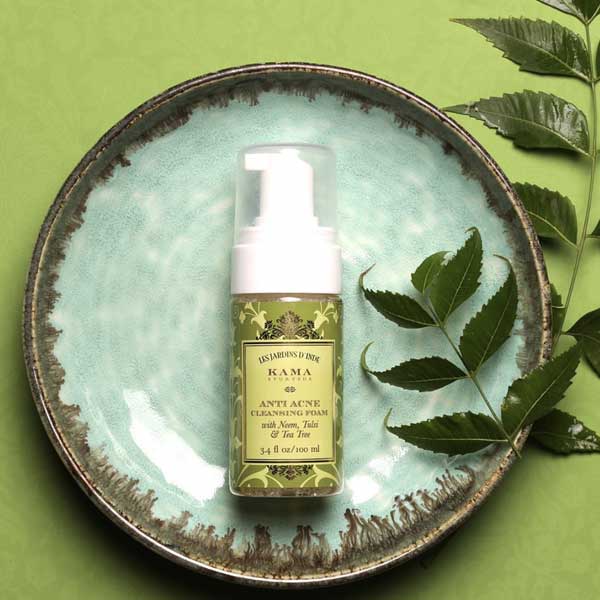
12. Regular Skincare Routine
Consistency is key in any skincare routine. Establishing a daily regimen that includes cleansing, moisturizing, and applying sunscreen can go a long way in maintaining clear skin. It's also important to give products time to work; often, it can take several weeks to see improvements.
13. Avoid Smoking and Limit Alcohol
Smoking can accelerate the aging process of the skin, leading to wrinkles and a dull complexion. Alcohol consumption can dehydrate the skin and deprive it of essential nutrients. Moderation is essential for maintaining skin health.
14. Get Enough Sleep
Sleep is the time when the body, including the skin, goes into repair mode. During deep sleep, the growth hormone facilitates cell repair and regeneration.
Lack of sleep can lead to increased levels of stress hormones in the body, which may exacerbate skin conditions like acne or psoriasis. Chronic sleep deprivation can also lead to dark circles under the eyes, fine lines, and dull skin.
Establishing a regular sleep schedule and creating a restful environment free from blue light before bedtime can improve sleep quality and, by extension, skin health. Aim for 7-9 hours of quality sleep per night to give the skin ample time to rejuvenate.
15. Don’t Forget Lip Care
Men's lips can suffer from dryness, chapping, and sun damage just as much as women's. To maintain healthy lips, men should use a hydrating lip balm.
Look for ingredients like beeswax, shea butter, or petroleum, which provide a protective barrier to retain moisture. Additionally, applying a lip balm before bed can help repair overnight dryness.
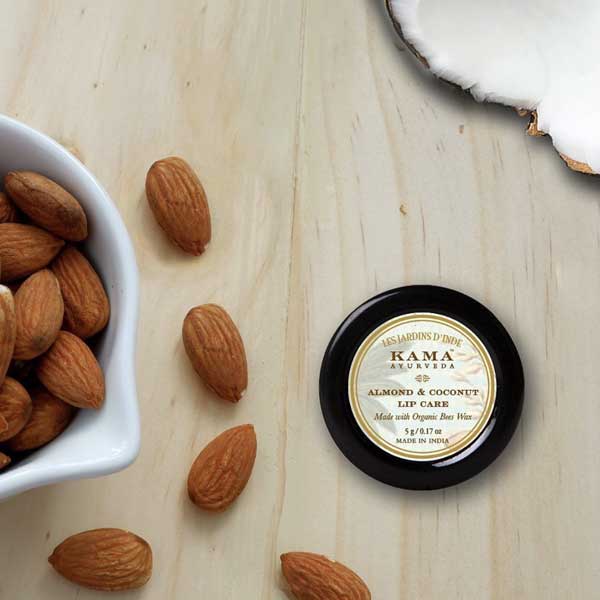
Incorporating these practices into a daily routine can significantly improve skin clarity and health.
However, genetics and environmental factors also play a role, and sometimes, despite best efforts, professional help may be needed. In such cases, a dermatologist can provide personalized advice and treatment options.
FAQ: Clear Skin for Men
Q: How often should men wash their face for clear skin?
A: Men should wash their face twice a day, in the morning and at night, using a gentle cleanser suited to their skin type.
Q: Can men use moisturizer if they have oily skin?
A: Yes, men with oily skin should still use a moisturizer, but they should opt for oil-free, non-comedogenic formulas that hydrate without clogging pores.
Q: What kind of sunscreen is best for men's skin?
A: Men should use a broad-spectrum sunscreen with at least SPF 30. For those with oily or acne-prone skin, water-based or gel-based sunscreens may feel lighter and less greasy.
Q: How does diet affect men's skin?
A: Diet plays a significant role in skin health. Foods rich in antioxidants, vitamins, and omega-3 fatty acids can promote clear skin, while high-glycemic and dairy products may contribute to breakouts in some men.
Q: Are there specific stress-reduction techniques to improve skin clarity?
A: Yes, techniques such as regular exercise, meditation, adequate sleep, and social engagement can reduce stress and improve skin health.
Q: How can men deal with razor bumps and ingrown hairs?
A: To prevent razor bumps and ingrown hairs, men should use a sharp razor, shave in the direction of hair growth, and apply a soothing aftershave product. Exfoliating regularly can also help to prevent ingrown hairs.
Q: Is exfoliation necessary for clear skin, and how often should men do it?
A: Exfoliation helps to remove dead skin cells and can prevent clogged pores, leading to clearer skin. Men should exfoliate with a product suitable for their skin type 1-2 times a week.
Q: Can smoking and alcohol affect skin health?
A: Yes, smoking can accelerate aging and contribute to wrinkles and a dull complexion, while excessive alcohol consumption can dehydrate the skin and exacerbate skin conditions.
Q: What should men do if over-the-counter products don't improve their skin?
A: If over-the-counter products are not effective, men should consult a dermatologist who can prescribe stronger treatments or identify any underlying conditions.
Q: How important is sleep for maintaining clear skin?
A: Sleep is crucial for skin health as it's when the body repairs itself. Lack of sleep can lead to increased stress and skin problems like acne and eczema.
